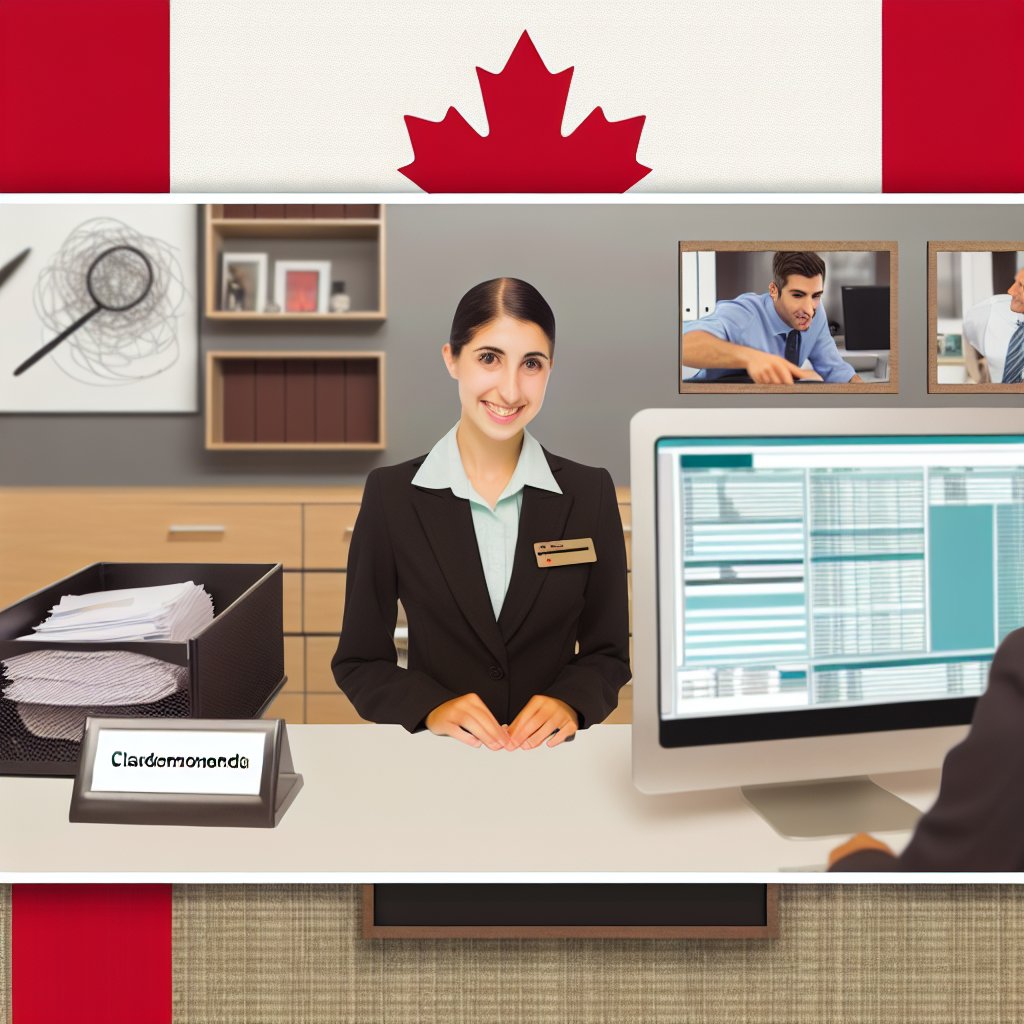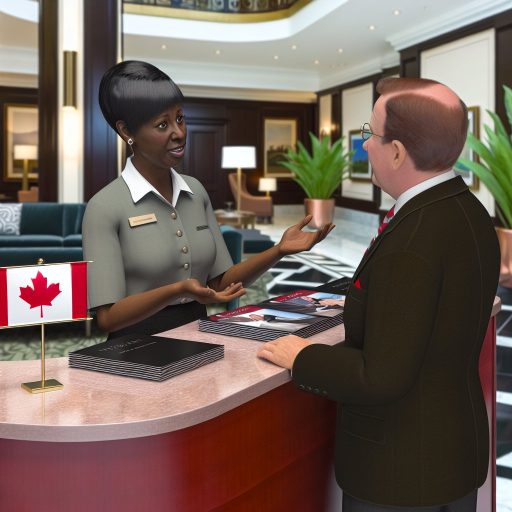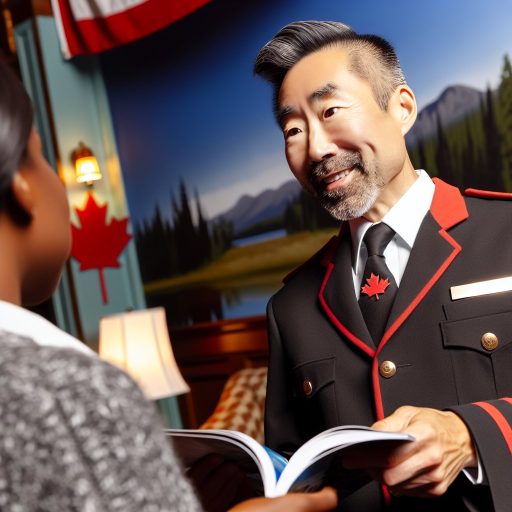Creating a Daily Checklist
Importance of a Checklist
A daily checklist helps you stay on track with your tasks.
It allows you to prioritize responsibilities effectively.
Additionally, it reduces stress by visualizing your workload.
How to Create Your Checklist
Start by listing all your daily tasks and responsibilities.
Break down larger tasks into smaller, manageable steps.
This method helps ensure nothing is overlooked.
For instance, include check-in calls and report updates.
Prioritizing Tasks
Use a priority system to categorize your tasks.
Mark urgent tasks that must be completed first.
Also, identify tasks that can wait until later.
Consider using color codes for easy recognition.
Reviewing and Adjusting
At the end of each day, review your checklist.
Note what you accomplished and what remains pending.
This reflection helps you adjust for the next day.
Finally, ensure to modify your checklist as priorities change.
Utilize Digital Tools and Software for Scheduling and Reminders
Be Familiar with Various Applications
Front desk agents should explore a range of scheduling applications.
Popular tools like Google Calendar can streamline appointments.
Additionally, software such as Trello helps manage tasks efficiently.
Set Up Automated Reminders
Automated reminders can reduce missed deadlines.
Utilize reminders through digital calendars to stay notified.
Consider using task management apps with built-in notifications.
Customizing Your Workspace
Every tool should align with your work style for maximum efficiency.
Customize notifications to suit your working hours.
Organize your digital workspace to minimize distractions.
Regularly Update Your Tools
Keep software and applications updated for optimal performance.
Unlock Your Career Potential
Visualize a clear path to success with our tailored Career Consulting service. Personalized insights in just 1-3 days.
Get StartedRegular updates can enhance security and functionality.
Periodically review tool effectiveness and replace as needed.
Collaboration with Team Members
Leverage tools that facilitate communication with your team.
Software like Slack can enhance team collaboration quickly.
Shared calendars promote transparency among team members.
Maintain a Tidy and Organized Workspace
Clear Your Desk Regularly
Start by clearing your desk at the end of each shift.
This simple habit helps you reset your workspace daily.
Additionally, remove any unnecessary items and clutter.
By doing so, you make space for essential materials.
Utilize Organizational Tools
Invest in trays and organizers to keep items sorted.
This reduces the time spent searching for important documents.
Moreover, consider using labels for better visibility.
Clearly marked files make retrieval quick and easy.
Keep Important Documents Accessible
Store frequently used documents within arm’s reach.
This allows you to respond promptly to guest inquiries.
Furthermore, create a filing system for other important papers.
This organization enables easy access when needed.
Maintain Digital Organization
Regularly sort and manage your email inbox.
Utilize folders and tags to categorize important messages.
Consequently, you can quickly find necessary information.
Periodically back up files to prevent data loss.
Prioritize Tasks Effectively
Start each day by listing tasks in order of priority.
This helps you focus on what needs to be accomplished first.
Moreover, consider using digital tools for task management.
These tools provide alerts and reminders for deadlines.
Stay Hydrated and Take Breaks
Remember to drink water throughout your shift.
Staying hydrated improves concentration and productivity.
In addition, take regular breaks for mental clarity.
Short breaks prevent burnout while enhancing overall performance.
You Might Also Like: How Sommeliers Influence Wine Trends in Canada
Implementing a Filing System for Documents and Guest Information
Choosing the Right Organizational Method
Select an appropriate filing method that suits your work environment.
Consider digital options for easy access and storage.
Alternatively, physical filing cabinets may work for your needs.
Organizing Guest Information
Create a separate folder for each guest’s information.
This folder should include reservation details and special requests.
Ensure that all documents are updated regularly.
Document Classification
Classify documents into categories for better accessibility.
For example, use folders for invoices, contracts, and feedback forms.
Label each folder clearly to avoid confusion.
Regular Maintenance
Set aside time each week to organize your filings.
This will prevent the buildup of unwanted documents.
Regularly review and purge unnecessary paperwork.
Creating Backup Systems
Utilize cloud storage as a backup for important documents.
This adds an extra level of security to your information.
Ensure that all team members understand how to access backups.
Find Out More: The Future of the Concierge Profession in Canada
Practice Effective Communication with Team Members to Streamline Workflows
Establish Clear Communication Channels
Begin by defining communication channels within the team.
Ensure everyone knows how to reach each other efficiently.
For instance, use internal software like Slack or Microsoft Teams.
This approach fosters quick exchanges and reduces downtime.
Encourage Regular Team Meetings
Schedule weekly meetings to discuss workflows and tasks.
These meetings help identify bottlenecks in operations.
Encourage team members to share updates on their responsibilities.
This practice promotes collaboration and transparency.
Utilize Shared Platforms for Task Management
Adopt task management tools like Trello or Asana.
These platforms allow team members to monitor progress together.
Additionally, they help prioritize tasks and deadlines effectively.
Regularly review these platforms in meetings for accountability.
Practice Active Listening
Actively listen to your teammates during conversations.
This skill fosters a positive work environment.
Take notes during meetings to remember important points.
Furthermore, repeating back key ideas shows understanding.
Provide Constructive Feedback
Give feedback in a timely manner to encourage improvements.
Frame suggestions positively to motivate team members.
For example, highlight what was done well before offering advice.
This method helps to maintain morale while enhancing skills.
Be Open to Suggestions
Invite team members to contribute ideas during discussions.
This openness encourages innovation within the team.
Moreover, it can lead to more efficient work processes.
Recognizing contributions enhances team cohesion and trust.
Delve into the Subject: Why Sommeliers Are Essential in the Hospitality Industry

Set Aside Specific Times to Review and Address Emails and Messages
Importance of Scheduled Email Review
Scheduling specific times for email review enhances focus.
It prevents distractions throughout the workday.
This approach fosters a more organized environment.
Establishing a Routine
Create a consistent schedule for checking emails.
For instance, set aside time in the morning.
Consider a break after lunch for additional reviews.
End-of-day assessments help clear pending messages.
Prioritizing Communication
Identify urgent messages that require immediate attention.
Use flags or stars to mark important emails.
This method streamlines the decision-making process.
Leveraging Tools
Utilize email management tools to organize your inbox.
Consider labels and folders to categorize messages.
Automation features can assist with repetitive tasks.
Avoiding Overwhelm
Limit the frequency of checking emails to avoid distractions.
Set boundaries to manage your workflow more effectively.
Remember, organization reduces stress and increases efficiency.
See Related Content: How to Master Multitasking as a Concierge
Establish Routines for Opening and Closing Procedures
Importance of Consistency
Consistency is key in front desk operations.
It creates a reliable experience for guests.
Additionally, it improves staff efficiency and morale.
Opening Procedures
Begin your day with a structured routine.
Start by checking for any important messages or alerts.
Next, review the occupancy status for the day.
This information helps prioritize tasks.
After that, prepare the front desk area for service.
Ensure all equipment is functional and ready.
Lastly, check in with your team to assign roles.
Closing Procedures
Closing routines are equally crucial for success.
Begin by reconciling the daily reports and transactions.
Next, ensure that all guest inquiries are addressed.
Follow this by securing all sensitive information.
Don’t forget to tidy the front desk area.
A clean environment promotes a professional image.
Finally, review lessons learned from the day.
This reflection improves future performance.
Creating a Checklist
Using checklists simplifies your routines.
Create separate checklists for opening and closing tasks.
Include each step needed to start and end your day.
Review and update checklists regularly.
This practice keeps procedures relevant and efficient.
Training and Accountability
Regular training promotes adherence to established processes.
Encourage team members to take ownership of their roles.
Accountability enhances the overall operation’s effectiveness.
Consider implementing a buddy system for training new agents.
This method ensures consistent performance across the team.
Regularly Evaluate and Update Organizational Strategies
The Importance of Assessment
Assessing your current organizational strategies is essential for efficiency.
Regular evaluations help identify areas for improvement.
Stay proactive in modifying your methods to increase productivity.
Methods for Evaluation
Begin by documenting your existing processes for reference.
Consider using feedback from team members about their workflows.
Analyze task completion rates and identify bottlenecks.
Utilize available software tools to track your performance metrics.
Implementing Changes
Once you’ve gathered data, outline potential changes to improve efficiency.
Start with small adjustments to minimize disruptions.
Communicate any changes clearly to your team to ensure understanding.
Monitor the effects of these changes closely over time.
Continuous Improvement
Organizational strategies should evolve as your role changes.
Set aside time for regular reviews of your processes and outcomes.
Encourage open dialogue among team members for ongoing feedback.
Embrace a culture of adaptability to enhance overall efficiency.
Additional Resources
What’s it like being a night auditor at a hotel? – Quora
I’ve just graduated from university with a bachelor degree in …




